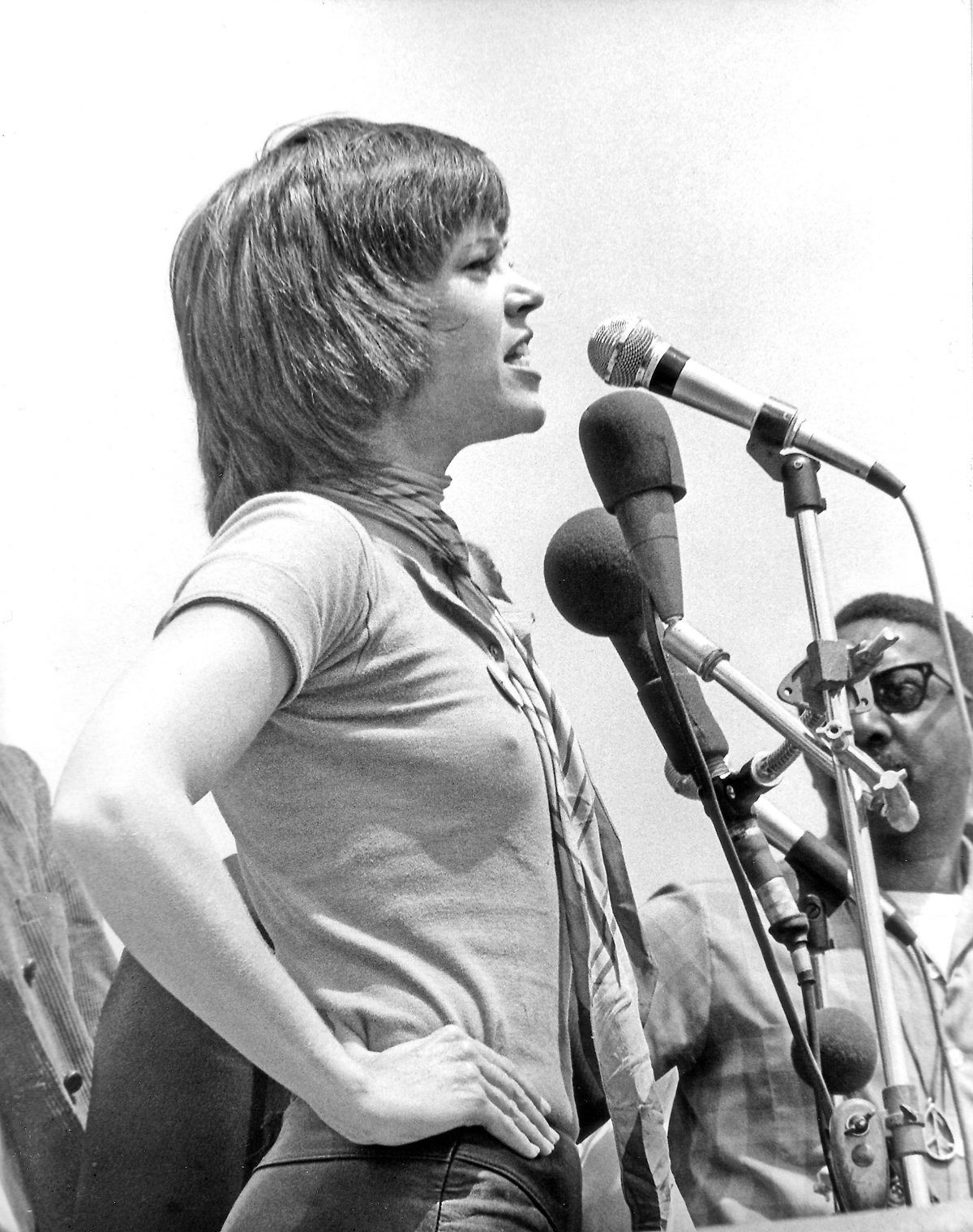
Jane Fonda, best known anti-war protester of the Vietnam War.
The daughter of the actor Henry Fonda, one of the most famous actors of his generation, Jane was born in 1937. Her mother was the Canadian socialite Frances Ford Seymour and it was the second marriage for them both. Jane Fonda’s childhood, although socially privileged and never for want of money, was nonetheless far from easy. When Jane was just twelve her mother killed herself while in a psychiatric hospital. Jane was never told the truth about what happened and only found out when reading a movie magazine. Fonda would later say that her mother’s medical records revealed that she had been a victim of repeated sexual abuse as a child.
After acting on Broadway with some success her film career began in 1960 with Tall Story. Playing opposite Anthony Perkins Fonda recreated her broadway role as a college cheerleader. Robert Redford also made his debut in the same film. Playing a prostitute in Walk on the Wild Side made in 1962 earned Fonda a Golden Globe for Most Promising Newcomer.
In 1965 Fonda married, at the Dunes Hotel in Las Vegas, her first husband, French film director Roger Vadim. In 1968 they had a daughter named after the actress and activist Vanessa Redgrave. In the same year Fonda played the title role in the science fiction spoof Barbarella, which which made her famous throughout the world. The following year, in a more serious role, she received her first
nomination for They Shoot Horses, Don’t They? (1969). Around this time she turned town lead roles in Rosemary’s Baby and Bonnie and Clyde.
While Fonda was living in France with Vadim she went to her first anti-war protest. when she attended her first antiwar rally although she was initially shocked with the anti-Americanism: “It was all about how horrible America was,” Fonda once explained to the New Yorker. Looking back on her life she felt that at the time she thought women were unable to change anything but started to change her mind after watching French television news showing the damage American bombers were doing to Vietnamese schools, hospitals, and churches.
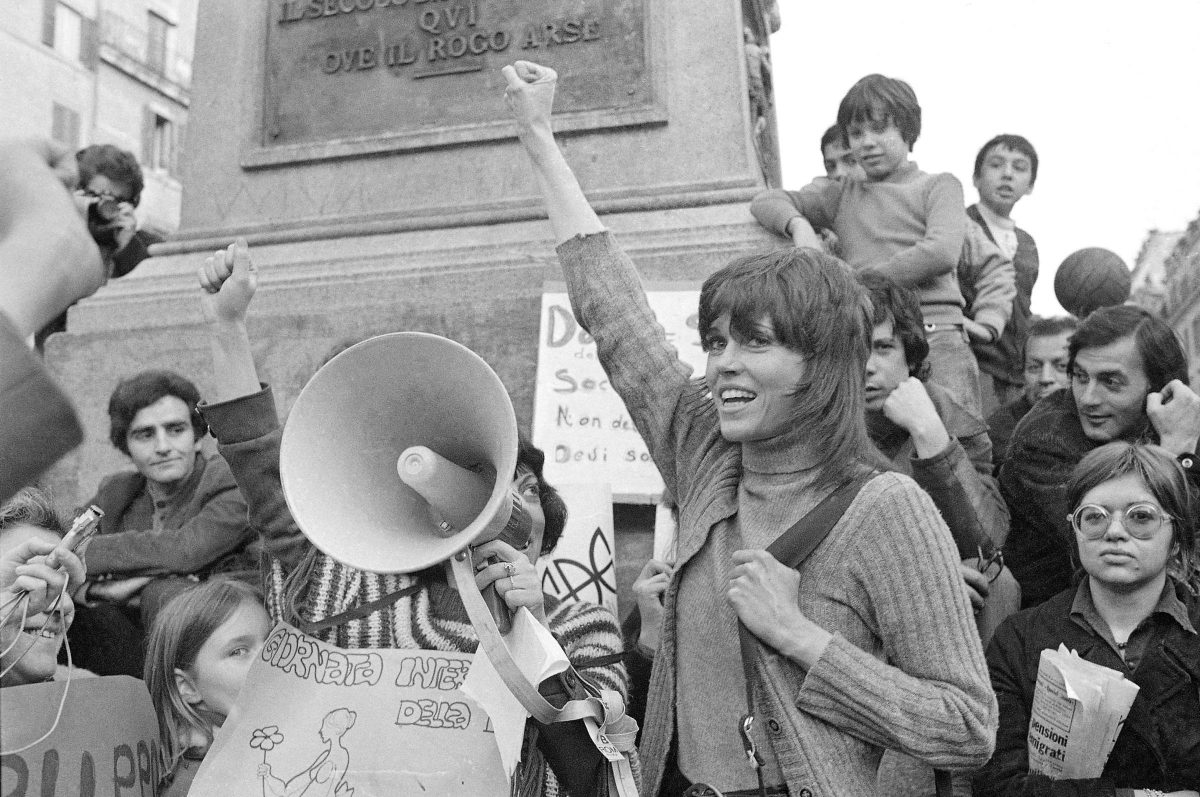
Fonda participates in a demonstration in Rome on March 8, 1972.
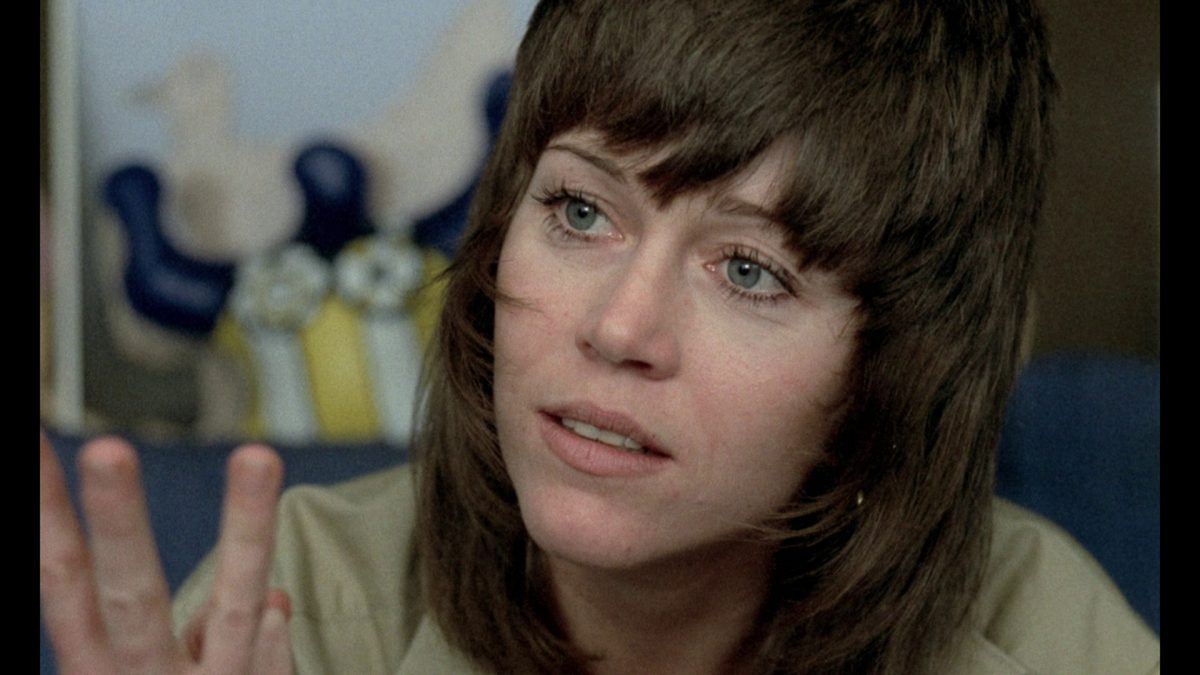
Jane Fonda c.1972
Fonda’s political activism began soon after appearing in Barbarella and she recently recalled in the Guardian -“and I took a lot of heat on it from feminists. The new women’s movement was in its early stages and there was a lot of…” she adopts a comically stern voice: “‘How do you feel making a movie that exploits women, like Barbarella?’ You’d kind of want to say: ‘Well, honey, nobody forced me.’ But,” she concedes, “it wasn’t much fun to make it.”
The change from ‘actress to activist’ confused many movie-goers and reviewers. The Guardian in 1971 wrote:
Jane Fonda, in her early incarnations, was not at all unattractive as the high spirited and rebellious sex symbol who starred in 18 movies. It’s a risk that her fans will be turned off by the sight of a 33 year old one-time sex kitten assuming a pose that is both asexual and astringent. Miss Fonda’s current views would make it impossible for her to work in another film like “Barbarella”: “I think it was good entertainment and rather vapid and exploitive of women. And I wouldn’t make a movie like that again.”
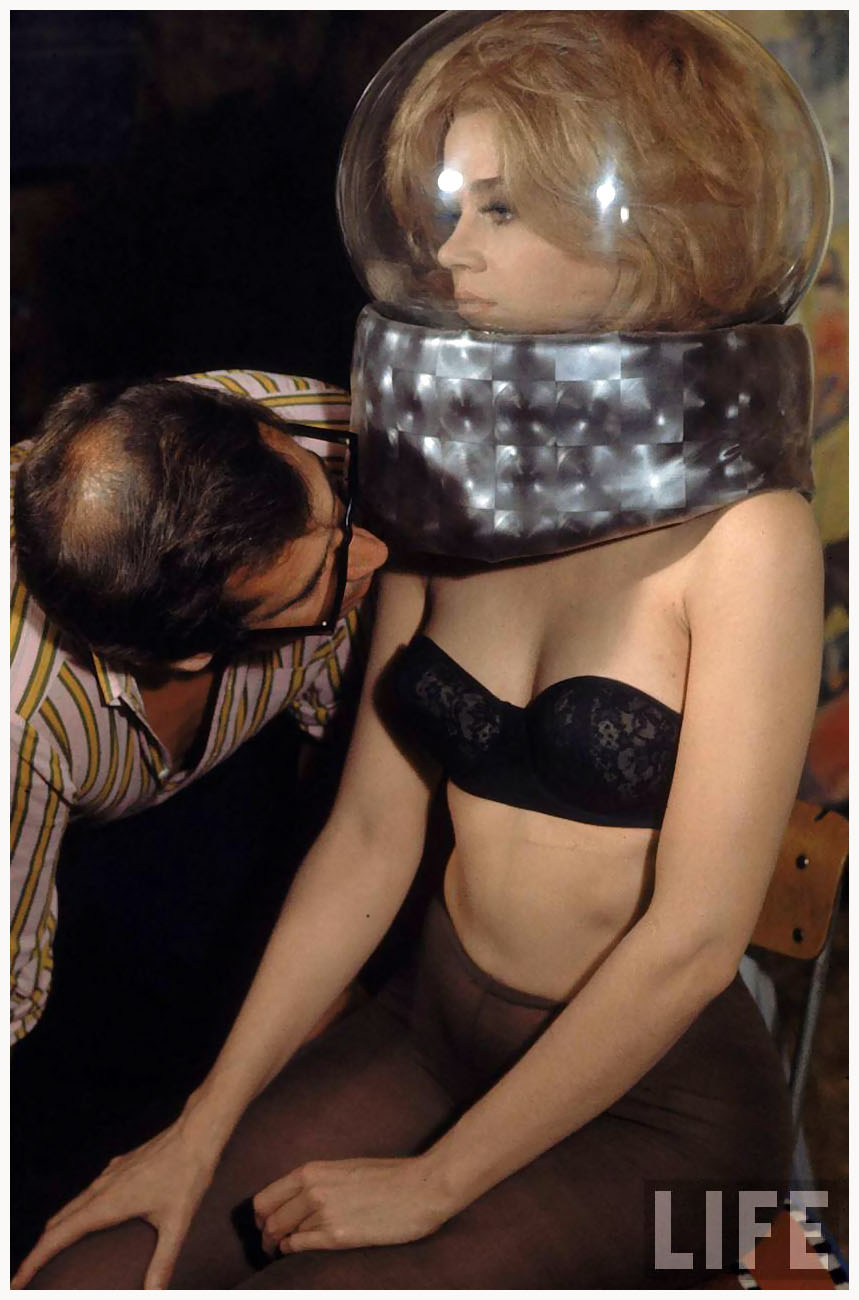
Roger Vadim and Jane Fonda working on movie “Barbarella” near Rome 1967 photo Carlo Bavagnoli
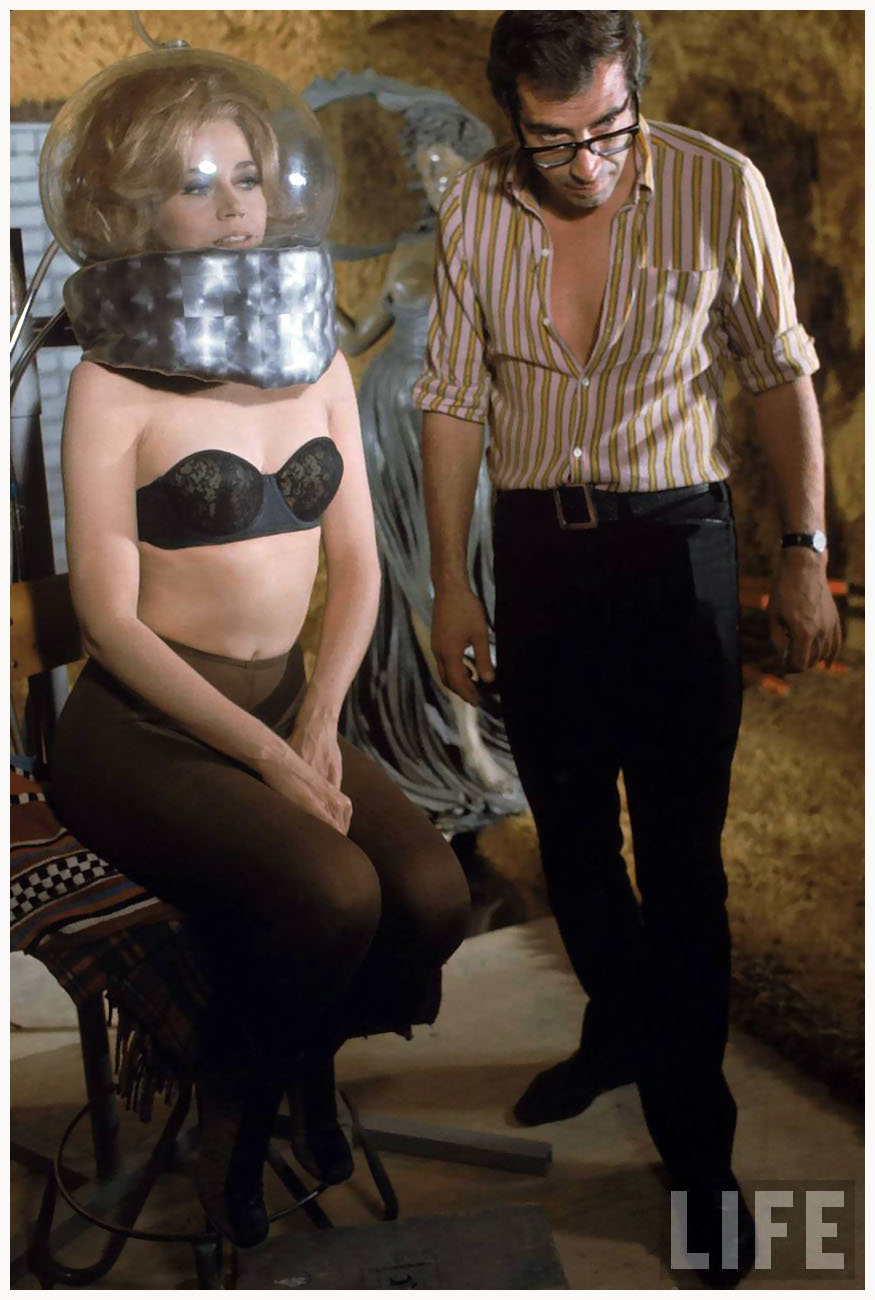
Roger Vadim and Jane Fonda working on movie “Barbarella” near Rome 1967 photo Carlo Bavagnoli
Along with other celebrities, including Anthony Quinn, Merv Griffin and Creedence Clearwater Revival who donated a boat called “Clearwater”, Fonda supported the Alcatraz Island occupation by Native Americans in 1969 attempting to get publicity about treaty rights and greater Native American sovereignty.
Fonda also supported Huey Newton and the Black Panthers at one point saying: “Revolution is an act of love; we are the children of revolution, born to be rebels. It runs in our blood.” She also called the Black Panthers “our revolutionary vanguard … we must support them with love, money, propaganda and risk”.
In April 1970, Fonda and her co-star in the movie Klute, Donald Sutherland formed the FTA tour (“Free The Army”, unofficially – “Fuck The Army”), an anti-war road show attempting to counteract Bob Hope’s USO tour.
In July 1972, when Fonda accepted an invitation to visit North Vietnam where during her two-week stay, Fonda stated that she thought the US was unjustly bombing farmland and civilian areas a long way from military targets. It was reported that Fonda made several radio announcements over the Voice of Vietnam radio to implore U.S. pilots to stop the bombings.
“I appealed to them to please consider what you are doing. I don’t think they know,” Fonda said in a news conference when she returned home. “The people who are speaking out against the war are the patriots.”
In 2015 on her personal website Fonda tried to explain what happened in Vietnam:
I hardly even thought about where I was sitting. The cameras flashed. I got up, and as I started to walk back to the car with the translator, the implication of what had just happened hit me. ‘Oh my God. It’s going to look like I was trying to shoot down U.S. planes.’ I pleaded with him, ‘You have to be sure those photographs are not published. Please, you can’t let them be published.’ I was assured it would be taken care of. I didn’t know what else to do.
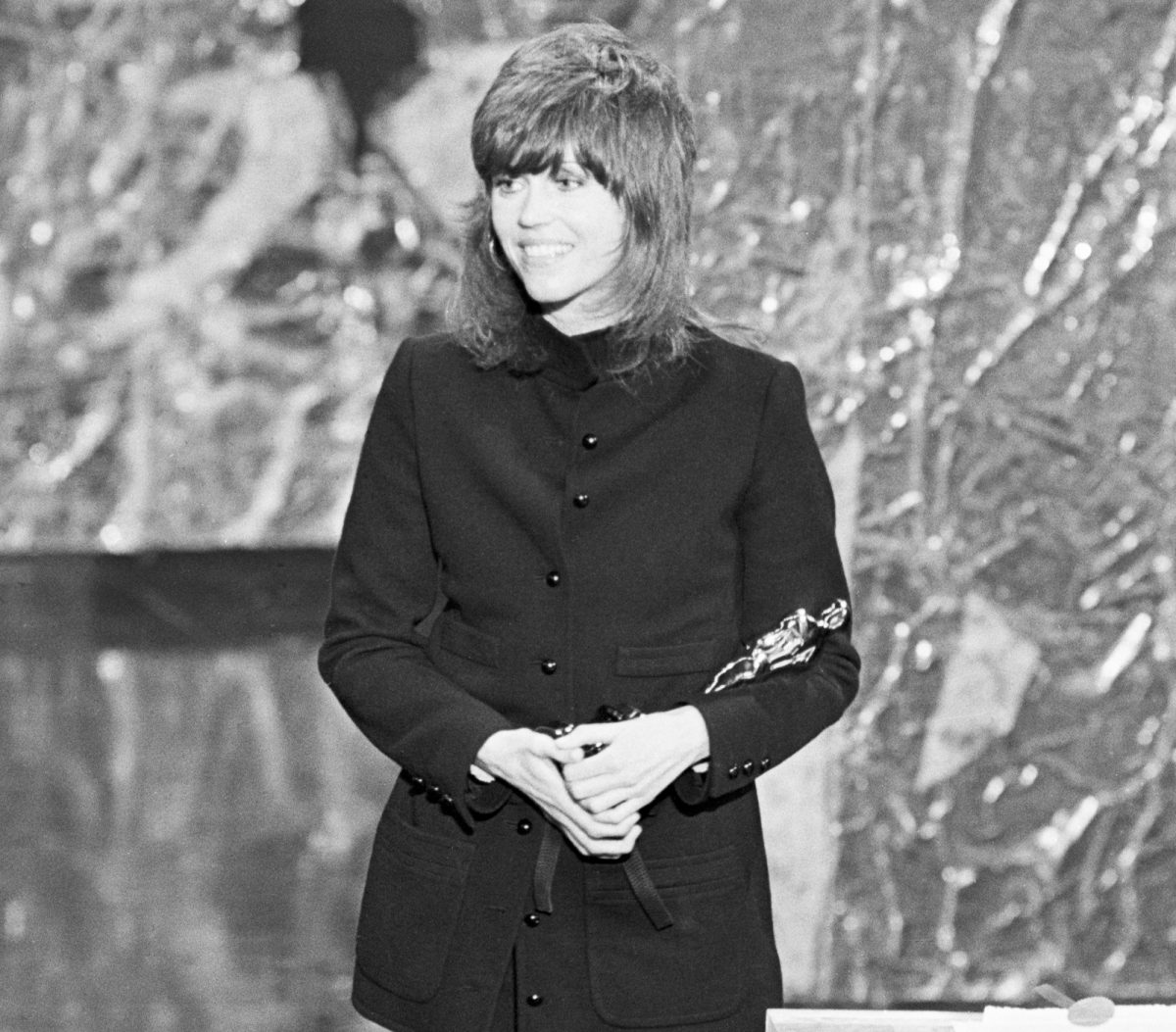
Jane Fonda thanks the audience after accepting an Oscar for Best Performance by an Actress, at the 44th annual Academy Awards, at the Music Center. The Yves Saint Laurent couture pants suit Ms Fonda worn in 1972 while accepting an Oscar for her role in “Klute.” “I bought this Yves Saint Laurent suit right after I gave birth to my daughter in 1968,” Ms. Fonda said. “I decided to wear it to the Oscars when I won for ‘Klute’ because I felt it suited the somber times. Besides, I wasn’t into buying fancy dresses when the Vietnam War was still being fought.”
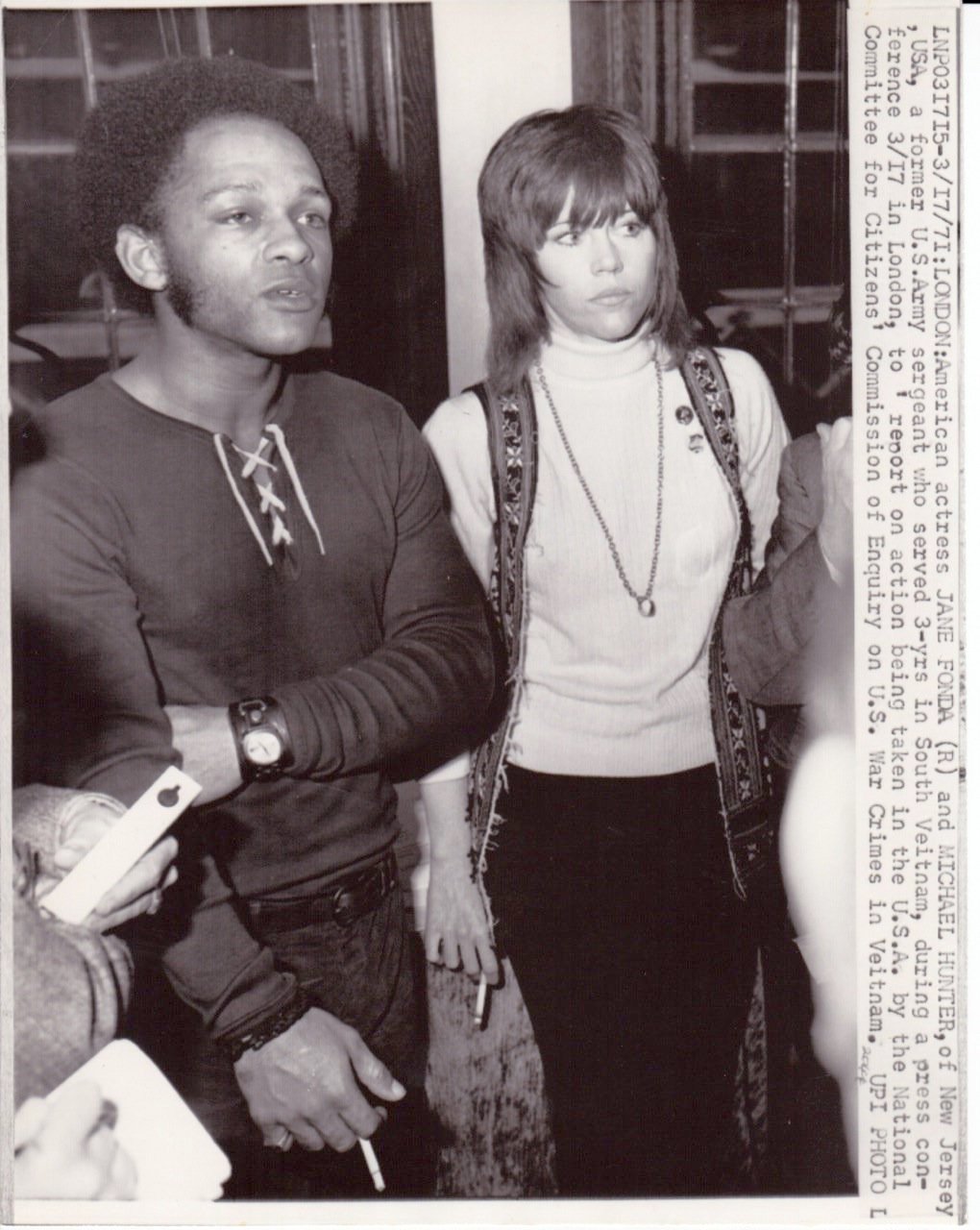
Jane Fonda London activist
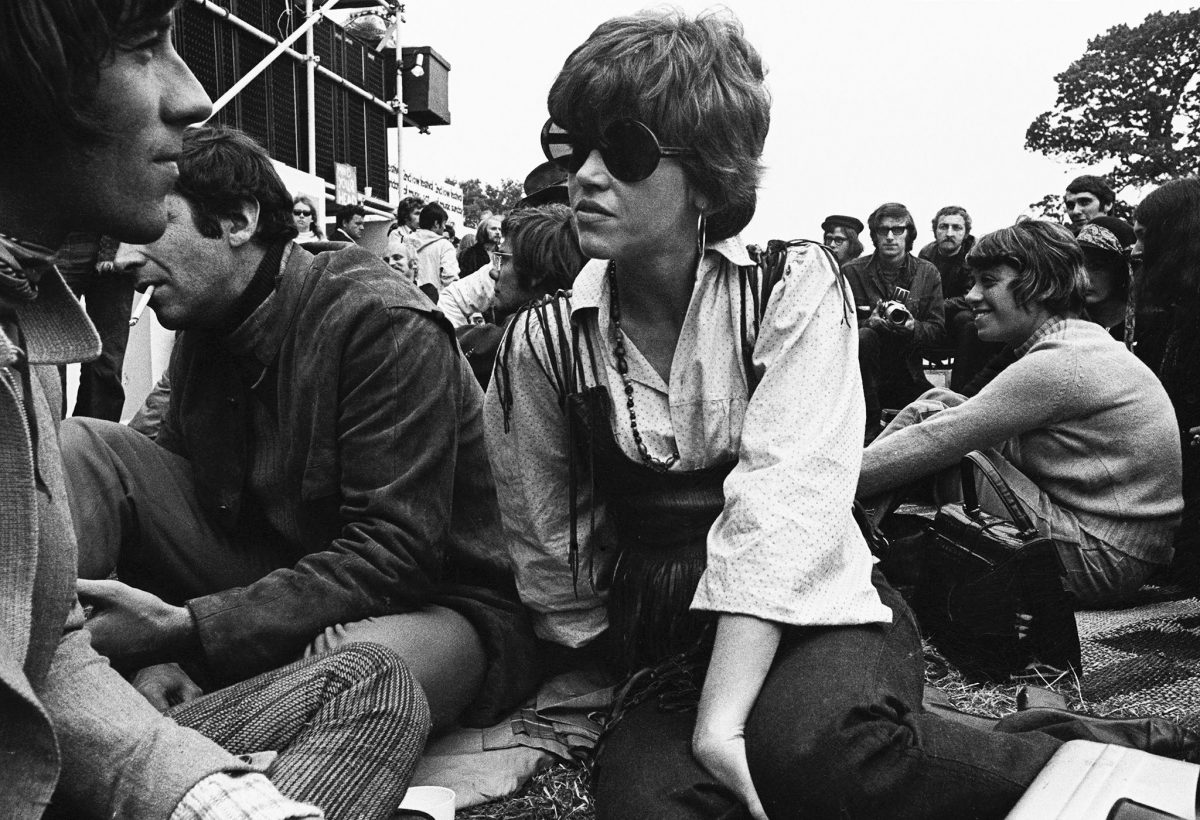
Jane Fonda at the Isle of Wight festival 1969 photo Anwar Hussein
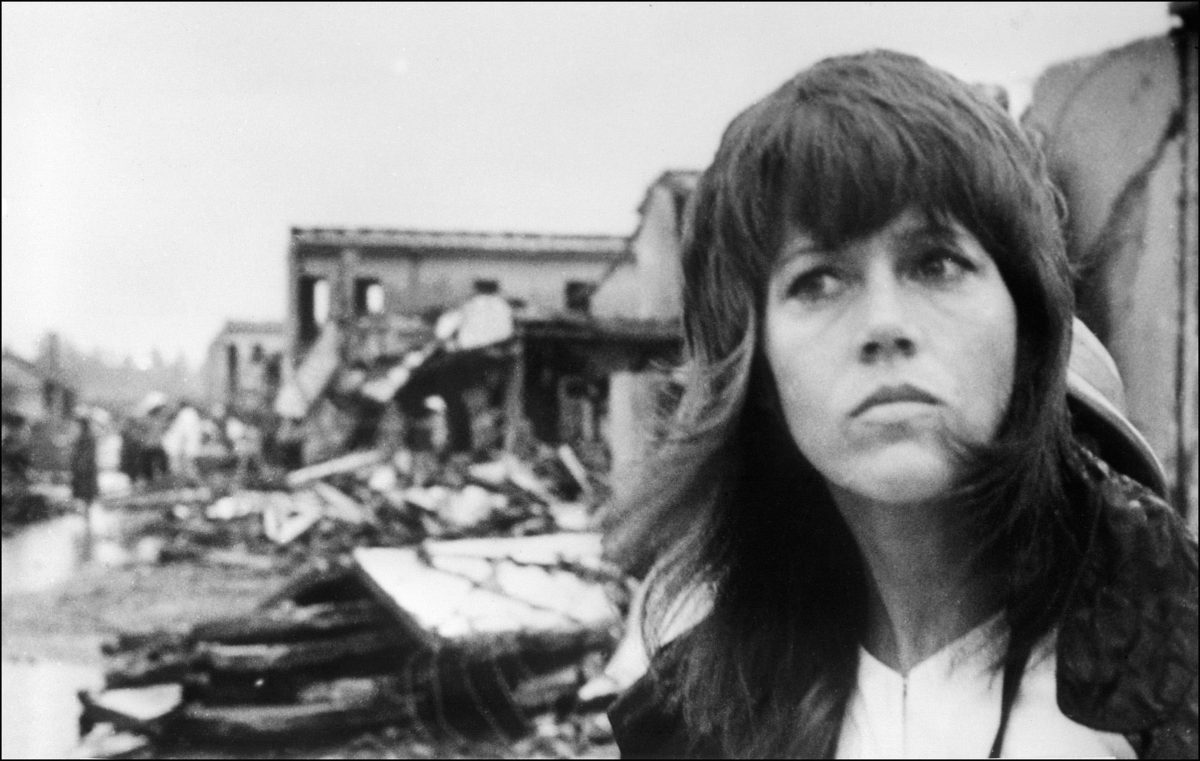
A photo dated 25 July 1972 of US actress Jane Fonda visiting Hanoi.
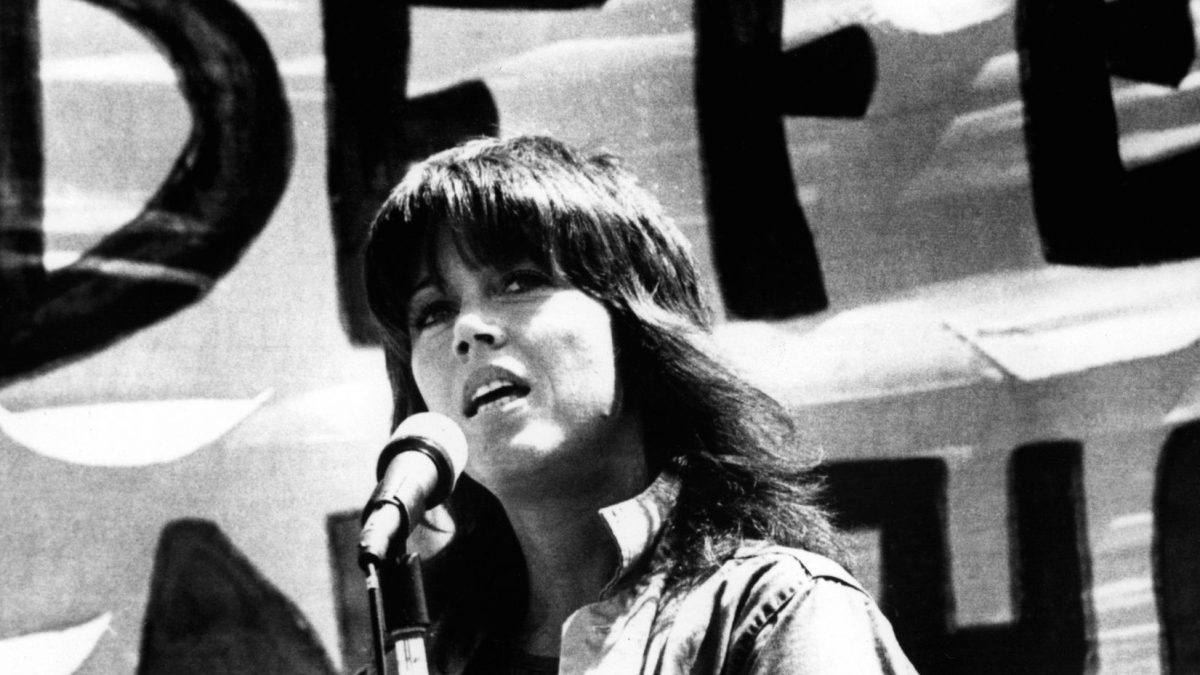
Jane Fonda speaking at an anti-war rally in San Francisco, CA (1972).
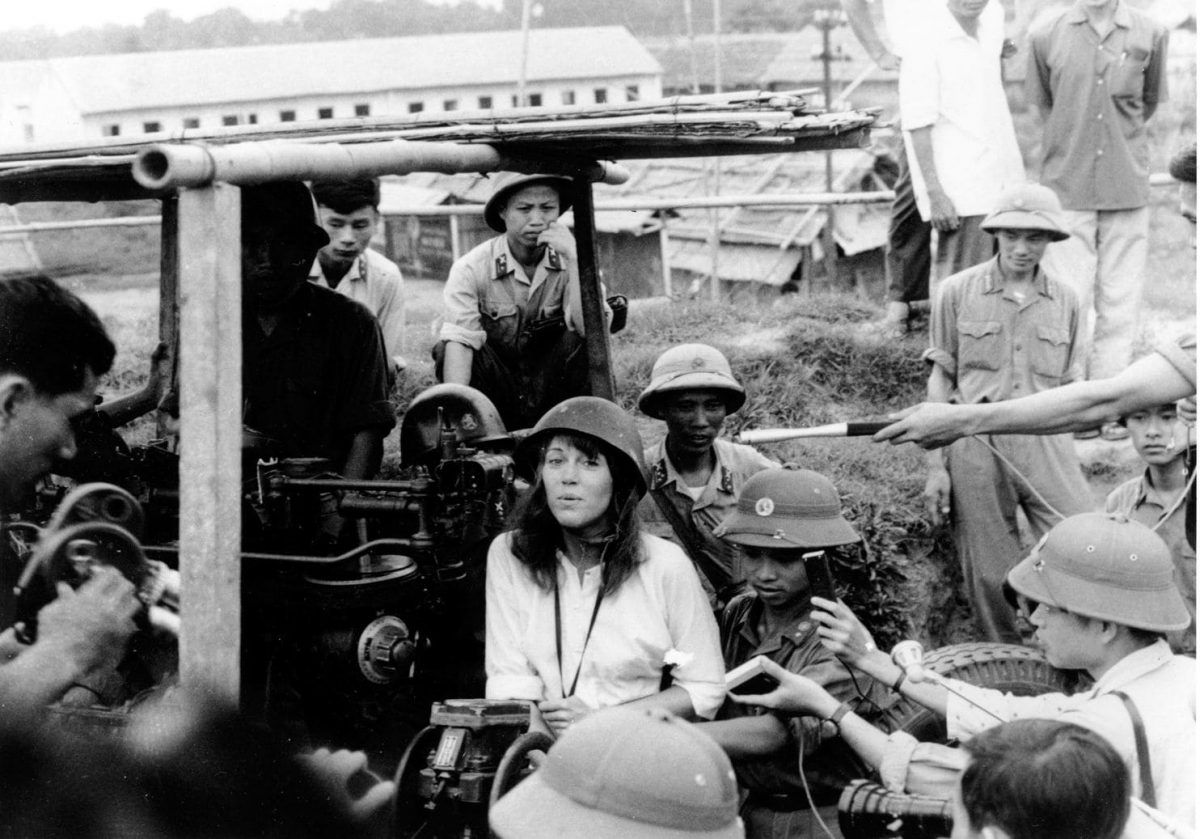
Jane Fonda’s 1972 trip to North Vietnam earned her the nickname ‘Hanoi Jane’
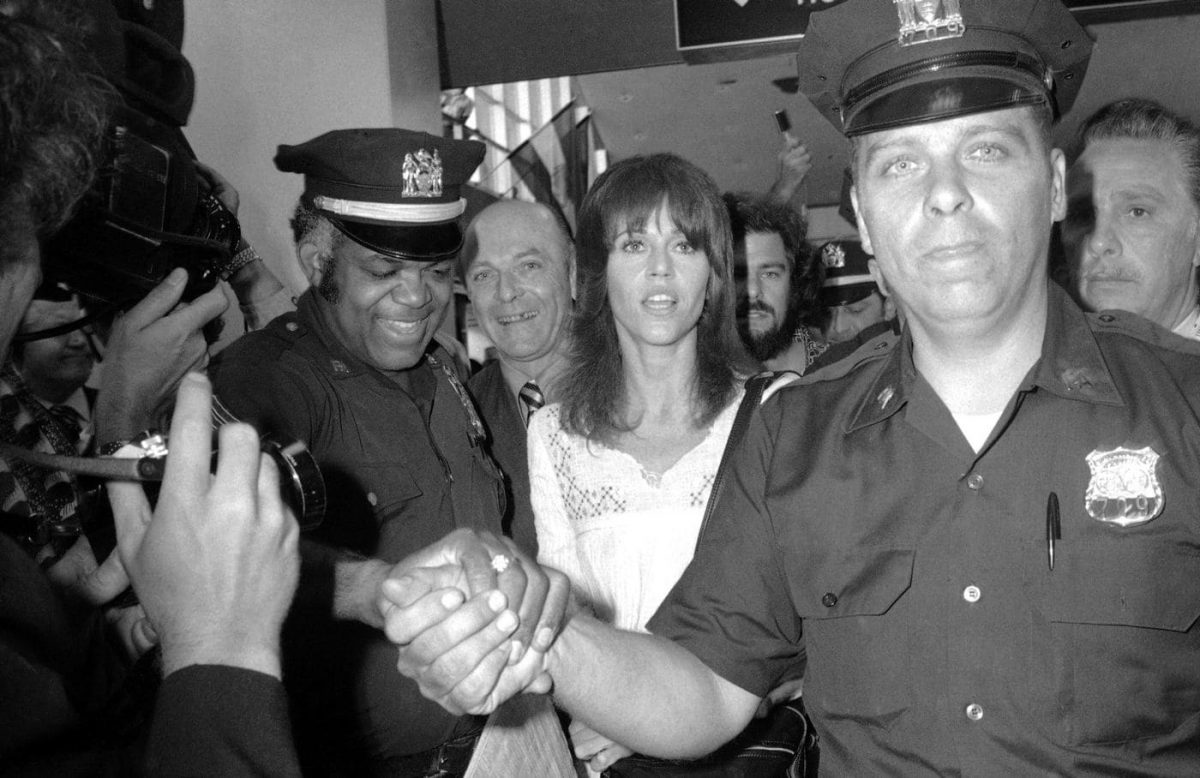
Jane Fonda arrives at John F. Kennedy International Airport in New York on July 27, 1972, after her “fact-finding” trip to Hanoi. (Marty Lederhandler)
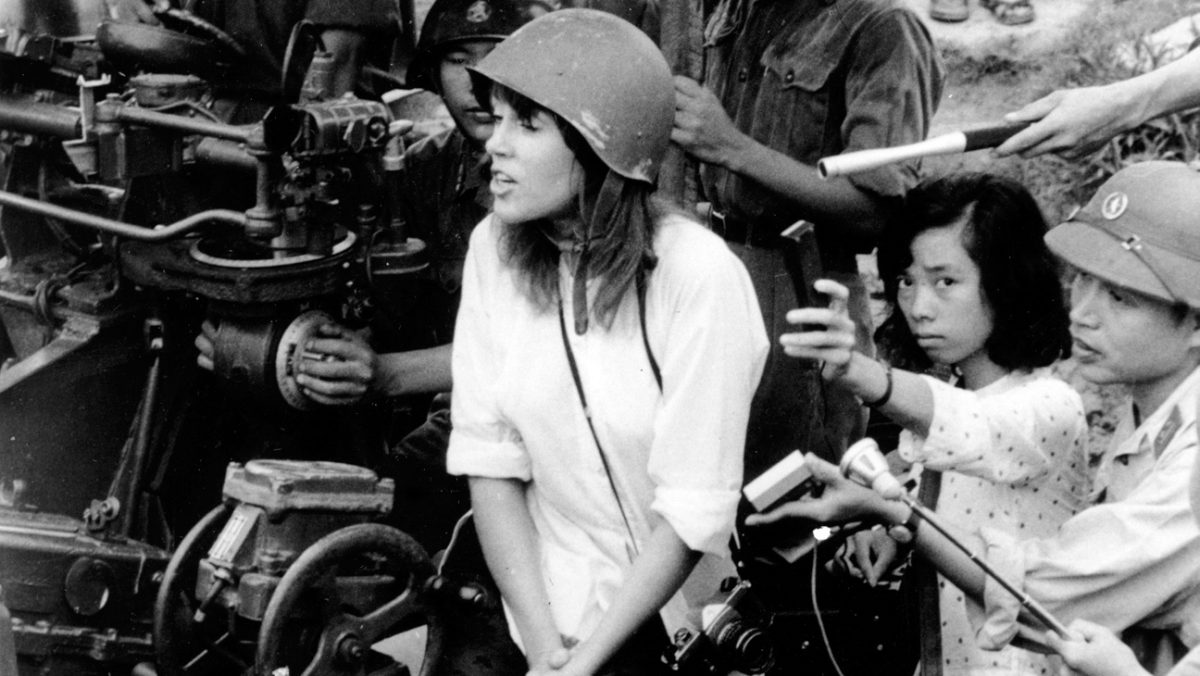
American actress and activist Jane Fonda sitting on an anti-aircraft gun is surrounded by soldiers and reporters as she sings an anti-war song near Hanoi during the Vietnam War in July 1972.
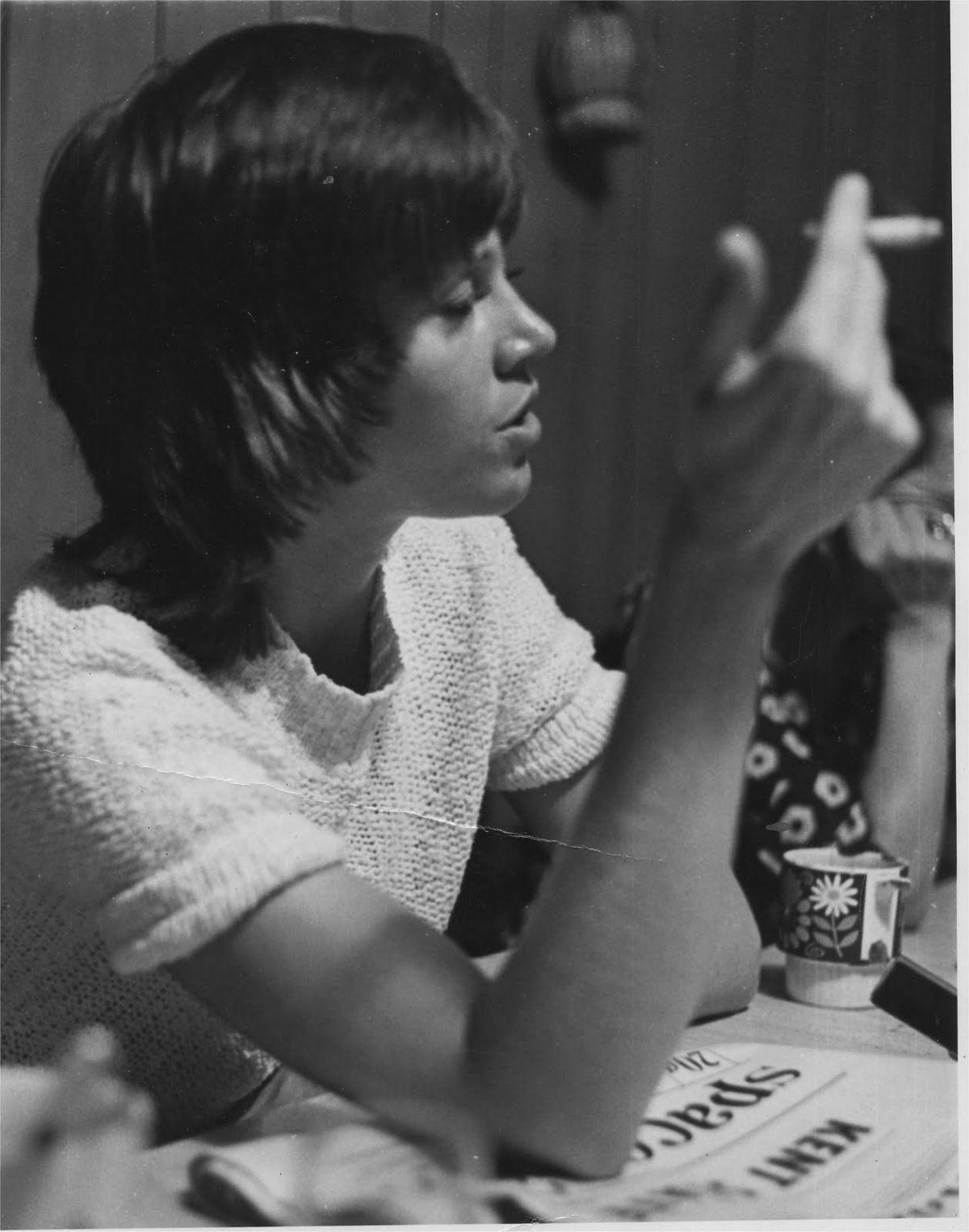
Jane Fonda at the Oleo Strut GI Coffee House, Killeen, Texas, circa May 1970. Photo by Thorne Dreyer
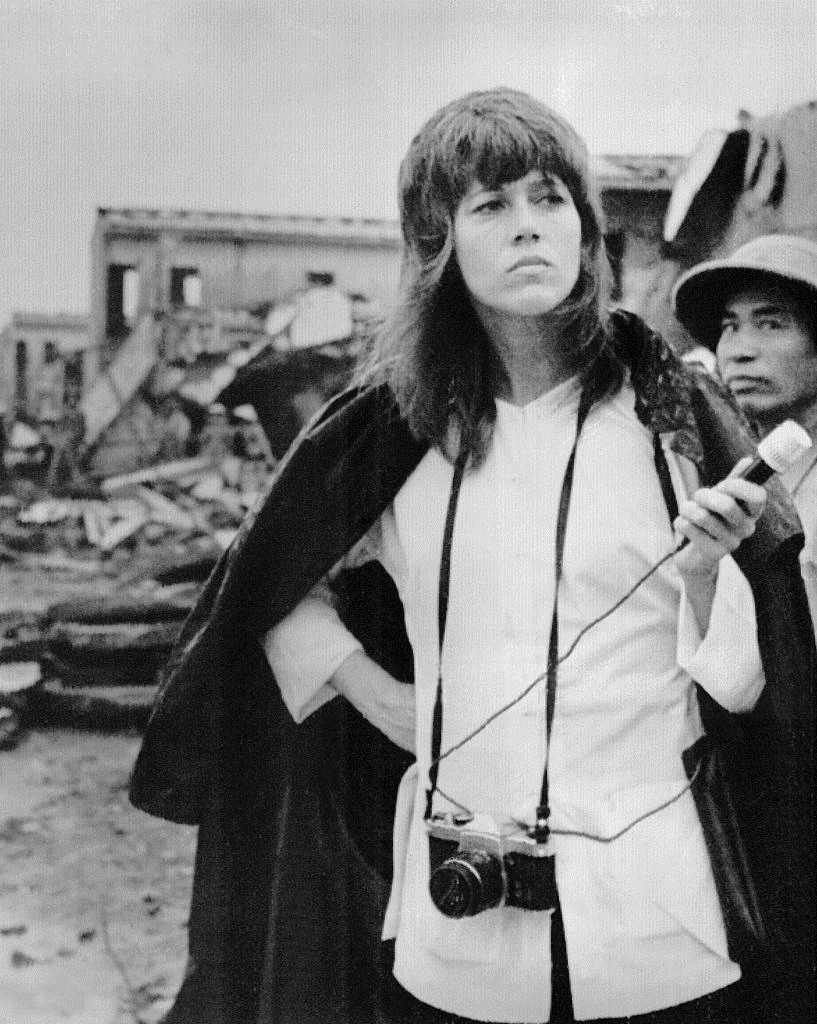
Jane Fonda in Hanoi , 1972
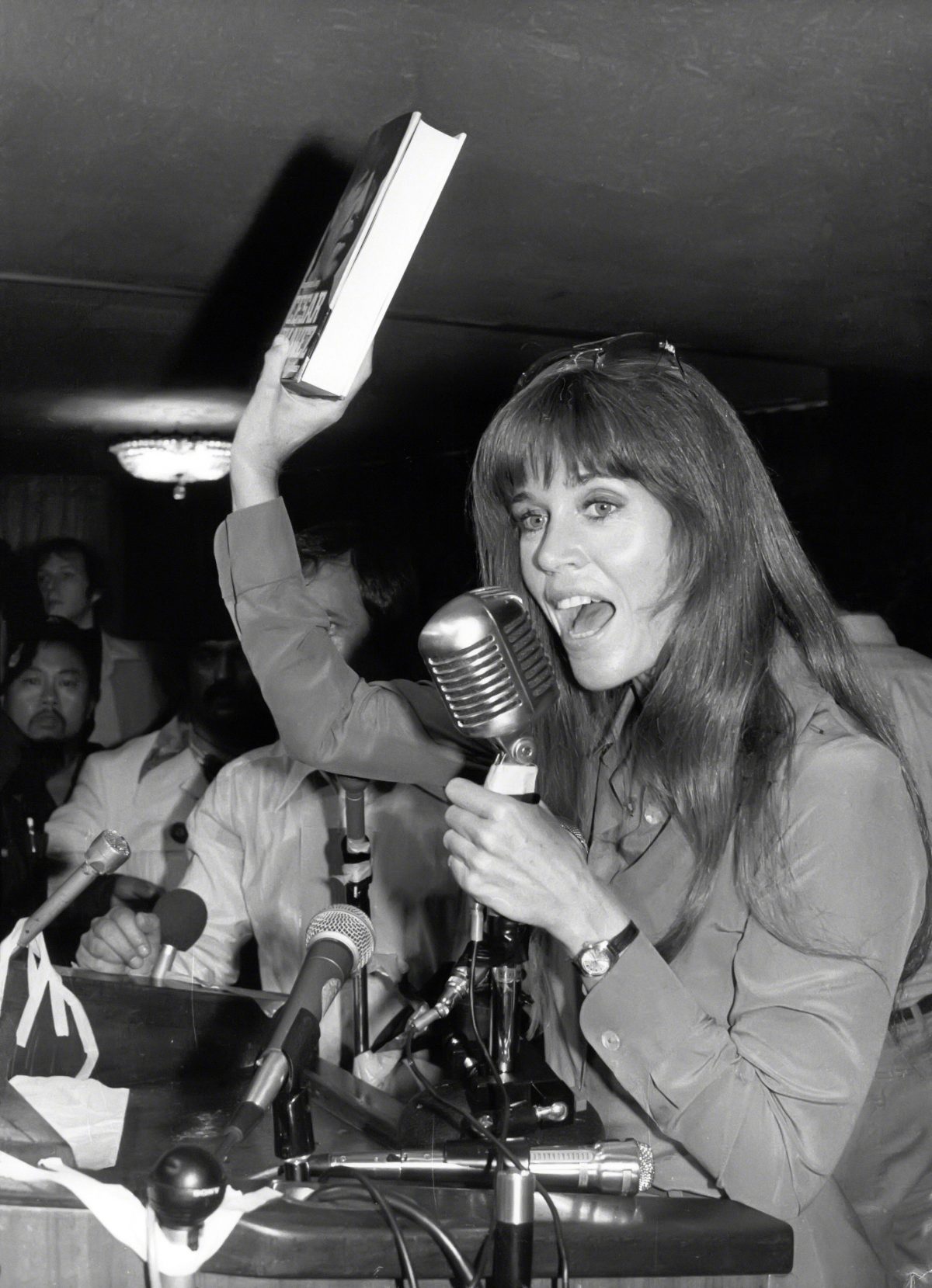
Jane Fonda auctions off a book by Caesar Chavez in New York City. c 1976.
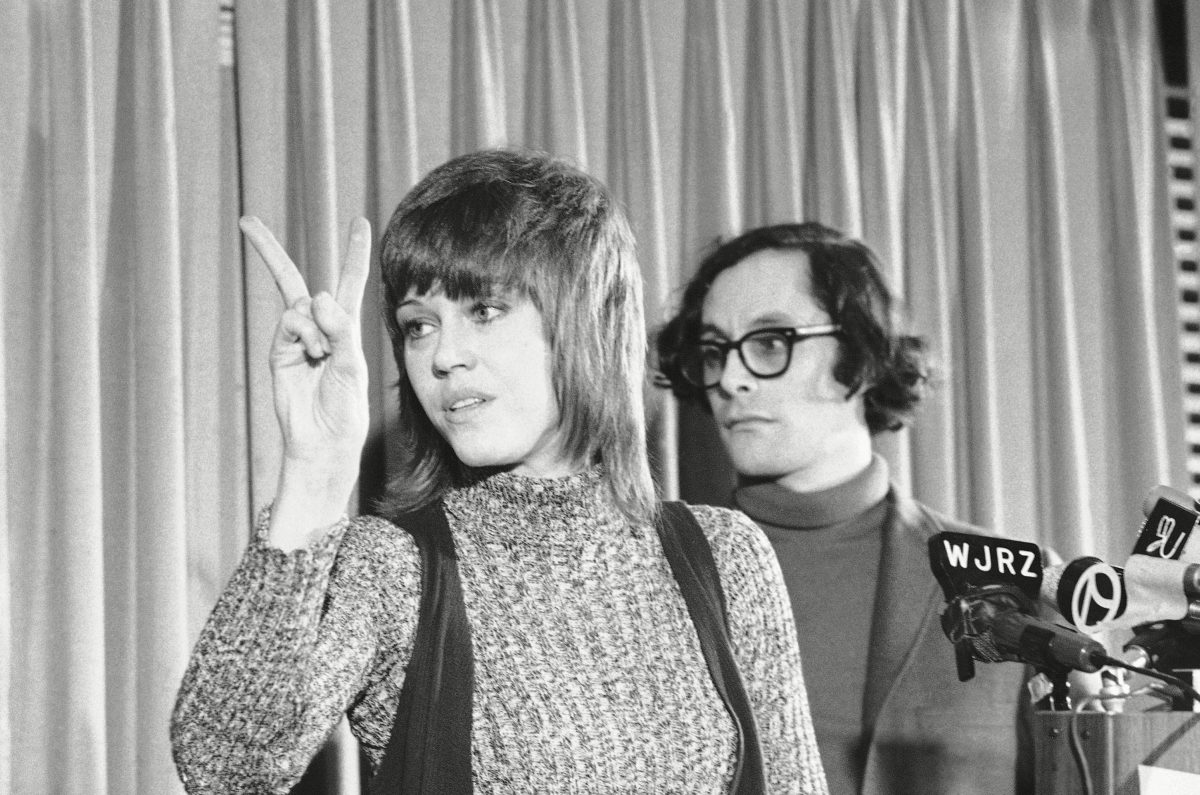
Politicial activist Actress Jane Fonda gives ?Peace? sign during New York news conference on . At her right is former army captain Howard Levy, who served 26 months of a three-year sentence for refusing to train Special Forces aidmen for duty in Vietnam. They are combining in an effort to stage shows for U.S. servicemen with a ?different view of the war.? The actress has been increasingly involved in the anti-war movement
Jane Fonda and Howard Levy, New York, USA
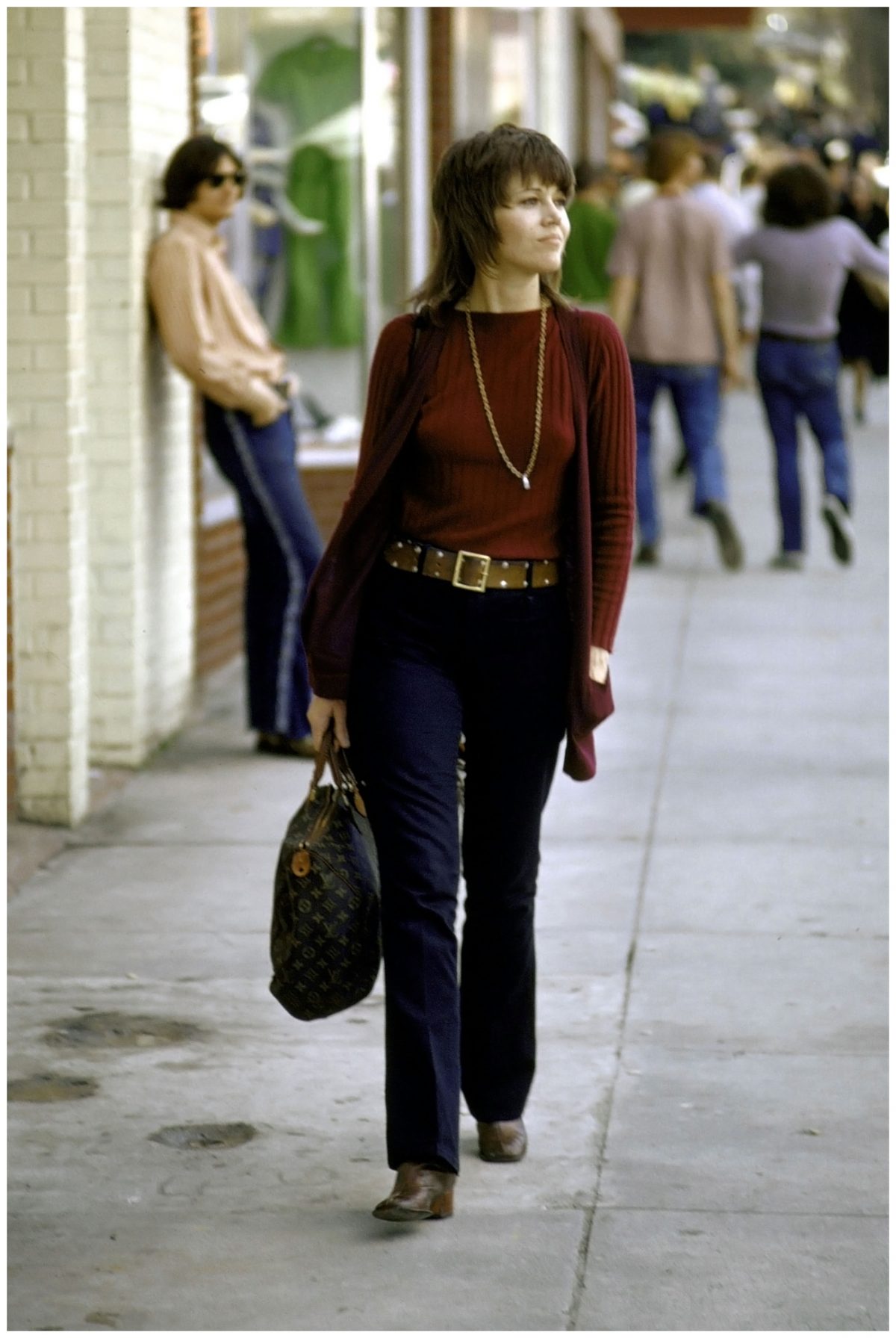
Jane Fonda carring a Louis Vuitton bag as she walks through the street. (Photo by Bill Ray)
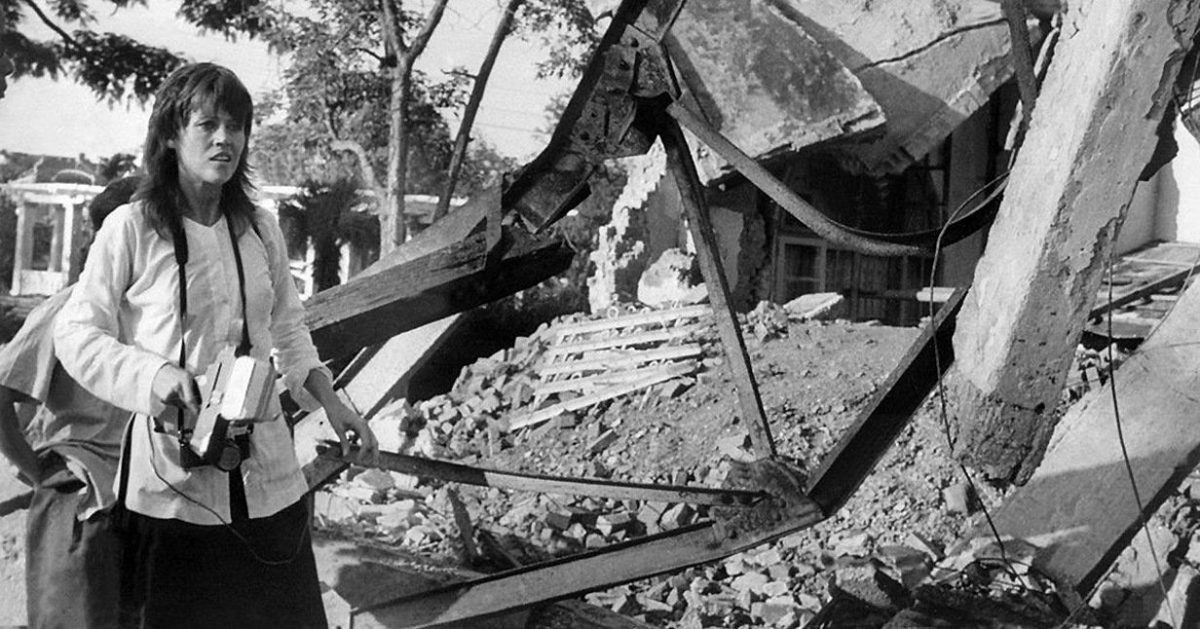
Jane Fonda Said About The Infamous Hanoi Jane Photo- “I Made A Huge Mistake”
Would you like to support Flashbak?
Please consider making a donation to our site. We don't want to rely on ads to bring you the best of visual culture. You can also support us by signing up to our Mailing List. And you can also follow us on Facebook, Instagram and Twitter. For great art and culture delivered to your door, visit our shop.

